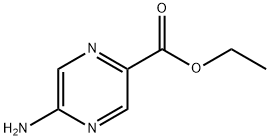A new study has raised a concerning question: Can extreme heat seriously accelerate the biological aging of the elderly? Researchers from the University of Southern California delved into this issue. They analyzed the health data of over 3,600 participants aged 56 and older. By studying epigenetic changes in blood samples over six years and comparing with local heat indices, they found a worrying trend.
After accounting for various factors like socioeconomic status and lifestyle habits, those living in areas with more extreme heat days still showed more significant increases in biological aging. For instance, in places like Phoenix where heat days are frequent, participants experienced up to 14 months of additional biological aging compared to those in cooler regions. But what exactly causes this acceleration? Is it the direct impact of high temperatures on cells? Or is it related to the body's weakened ability to regulate temperature as people age? These are questions yet to be fully answered.
A New Study: Can Extreme Heat Seriously Accelerate the Biological Aging of the Elderly
Related Products More >
-
- 84012-44-2
- equest For Quotation
- 10kg,25kg,50kg or according to customer's detail requirement.
-
- 72676-55-2
- equest For Quotation
-
- 68917-73-7
- equest For Quotation
- 1kg/aluminium foil bag
-
- 68917-73-7
- equest For Quotation
- 100g;1kg;25g
-
- 2460055-10-9
- equest For Quotation
- vials
-
- 2460055-10-9
- equest For Quotation
- 10mg per vial; 10vials/box
-
- 2460055-10-9
- equest For Quotation
- 10vials/box
-
- 2460055-10-9
- equest For Quotation
- 5mg/10mg/15mg/20mg/30mg/40mg/50mg/60mg/1g



 沪ICP备2021018848号-5
沪ICP备2021018848号-5

Biological age is different from chronological age. It measures how well the body is functioning at the molecular, cellular, and system levels. A higher biological age usually means a higher risk of diseases and death. In this study, even after considering factors like socioeconomic status and lifestyle habits, the link between heat and faster biological aging in the elderly still held.
Now, let's talk about how this might prompt actions. Policy - makers should really start paying more attention. For example, when planning urban areas, they can think about adding more shaded areas on sidewalks. Many elderly people like to take walks for exercise, but in hot weather, without shade, they are easily exposed to the sun's heat. Building shaded sidewalks can provide them with a cooler walking environment.
Architects also play a crucial role. When designing bus stops, they can add more sun - shading facilities. Elderly people often take buses, and waiting at a bus stop under the hot sun for a long time can be very uncomfortable and harmful to their health. With proper sun - shading at bus stops, they can wait more comfortably.
Planting more trees is another great solution. Trees can not only make the environment more beautiful but also help reduce the temperature. They provide natural shade and can absorb heat. In cities, expanding urban green spaces is also important. Green spaces can act as "lungs" of the city, improving air quality and reducing the heat island effect. Elderly people can also have more places to relax and do some light activities in these green areas.
In simple terms, this research has shown us a worrying fact that extreme heat can accelerate the aging of the elderly. But it also gives us some directions on what we can do. By taking these measures in infrastructure construction and urban planning, we can make the living environment more friendly and comfortable for the elderly, especially in the face of the increasing threat of extreme heat due to climate change.
Here's how they did it. They tracked over 3,600 people aged 56 and up for six whole years. They took blood samples and used this cool thing called epigenetic clocks to analyze changes in DNA and figure out everyone's biological age. And get this: people living in areas with more super - hot days had their biological age shoot up way faster than those in cooler places. Even after factoring in things like income and lifestyle habits, the link between heat and faster aging was still super strong.
So, what can we do about this? Well, policymakers, it's time to step up! For example, when planning cities, they should totally add more shade structures to sidewalks. A lot of seniors love going for walks, but walking under the blazing sun is no joke. It can lead to heatstroke and all sorts of health problems. With shaded sidewalks, they can enjoy their walks without feeling like they're melting!
Architects, you're on the clock too! When designing bus stops, make sure to include plenty of sun - shading features. Seniors often rely on buses to get around, and waiting at an unshaded bus stop in the sweltering heat is just miserable. A shaded bus stop can make a world of difference, keeping them comfortable and safe while they wait.
And let's not forget about trees! Planting more trees is an absolute game - changer. Not only do they make the city look prettier, but they also help lower the temperature. There's nothing quite like walking under the shade of a big tree on a hot day. Plus, we should expand urban green spaces. These green areas are like natural air conditioners for the city, making the environment cooler and the air fresher. Seniors can go there to take a stroll, do some tai chi, or just relax and enjoy the outdoors.
All in all, this study is a wake - up call. It shows us just how big of an impact extreme heat can have on our elderly. But hey, the good news is, we've got plenty of solutions. If policymakers, architects, and all of us pitch in, and focus on improving infrastructure and the urban environment, we can create a much more comfortable and healthy living space for seniors, and help them fight off the aging effects of extreme heat!